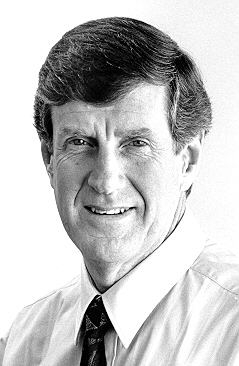Christopher Ehret, professor emeritus in the history department of the University of California, Los Angeles (UCLA), died on March 25, 2025. He joined the department in 1968 and rose through the ranks until his retirement as Distinguished Research Professor in 2011.

Photo courtesy UCLA Department of History
Chris was a fifth-generation Californian whose forebears arrived during the Gold Rush. Born in San Francisco, he grew up in Santa Paula. He first matriculated at Cal Tech as a math major but decided to pursue his interest in history at the University of Redlands, where he graduated in 1963. Later that year, he entered the history PhD program at Northwestern University, then one of the major centers for African studies.
At Northwestern, he was introduced to East African history by John Rowe and became interested in migration studies with his PhD chair, Franklin Scott. He attended seminars at the University of Wisconsin–Madison with Jan Vansina, who was already integrating linguistic analysis into his own work on early African history. Together with Chris’s deep interest in early world history, these mentors helped shape his research trajectory. Chris possessed a singular intelligence and a prodigious mental data bank of African languages. He exhibited a level of confidence in his methods and his evidence that enabled him to think well outside the constraints of evolving parameters of the new Africanist historiography that emerged from the 1970s. This combination of intellectual attributes made him a pioneer in the subfield of deep-time African history.
Chris made major contributions not only to our knowledge of early African history but also to African historical linguistics, publishing widely in both fields. Treating language as an archive, he pursued the concept of linguistic stratigraphy as the key to excavating Africa’s ancient past. His many publications reveal the extraordinary dialectic between specialized technical methodology and broader historical and theoretical engagement that characterize his scholarship. From tightly focused but wide-ranging technical monographs to more general historical works, Chris was a scholar who tacked between both worlds. Combining his extraordinary specialized knowledge with his commitment to teaching about early Africa, Chris produced several pathbreaking surveys that have truly transformed how we think about the African past. These most notably include An African Classical Age: Eastern and Southern Africa in World History, 1000 BC to AD 400 (Univ. of Virginia Press, 1998); The Civilizations of Africa: A History to 1800 (Univ. of Virginia Press, 2002; 2nd ed., 2016); and Ancient Africa: A Global History to 300 CE (Princeton Univ. Press, 2023). Chris collaborated extensively with scholars in other fields that bear on early African history, including linguistics, archaeology, ethnography, genetics, and demography.
At UCLA, Chris’s focus on early African history was complemented after Merrick Posnansky joined the department in 1976. Together they built a miniprogram in African history and anthropology that joined linguistic history with archaeology, mentoring outstanding graduate students who have gone on to important careers of their own. Among those who adopted Chris’s methodology in their own research are Cymone Fourshey, Rhonda Gonzales, Kairn Klieman, Christine Saidi, David Schoenbrun, and Constanze Weise. Chris chaired or co-chaired 29 history dissertations and served as a member of countless other PhD committees in history, anthropology, and linguistics. His former graduate students remember him as “an amazing mentor”; they are organizing a set of panels in his memory for the 2026 annual meeting of the African Studies Association. Chris could always be counted on to push his graduate students beyond what they had read for him in preparation for their qualifying exams. A hallmark of his graduate teaching was to involve his students in collaborative research teams to reconstruct some detail of a historical African language history; some of the products of these seminars were jointly published. Both these habits exemplified his own work.
Finally, Chris was a dependable colleague and a good friend. He could always be counted on to pull his weight in our field and within the wider campus network of African studies. Indeed, he was a model departmental and university citizen. In addition to his academic pursuits, Chris enjoyed listening to classical music, following current events and space exploration, reading mysteries, and visiting wineries.
Chris is survived by his wife Patricia Ehret, daughter Susannah Ehret and son-in-law Garrison Tong, grandchildren Samantha and Seth, son Seth Ehret and partner Lindsay Blade, and sister Florence Pierce and brother-in-law Don Pierce. He was one of a kind and will be sorely missed.
Edward A. Alpers
University of California, Los Angeles
This work is licensed under a Creative Commons Attribution-NonCommercial-NoDerivatives 4.0 International License. Attribution must provide author name, article title, Perspectives on History, date of publication, and a link to this page. This license applies only to the article, not to text or images used here by permission.
